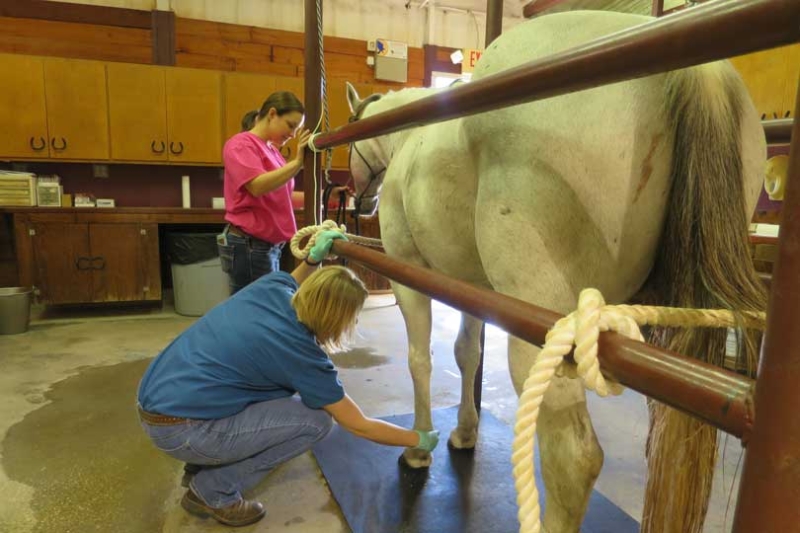Attention has been called to the critical shortage of rural veterinarians by two U.S. senators.
U.S. Sens. Debbie Stabenow (D-Mich.), and Mike Crapo (R-Idaho), introduced the Rural Veterinary Workforce Act last month. The legislation includes tax incentives intended to encourage more veterinarians to practice in rural communities.
Similar legislative efforts have been unsuccessful.
More than 500 counties across 46 states have reported critical veterinarian shortages, according to the senators.
“Quality veterinary care is essential to the agricultural economy and public health in rural communities in Michigan and across the country,” Stabenow said. “But too many communities lack the veterinary services they need. This bipartisan bill will provide incentives to veterinarians to practice in underserved areas, where quality veterinary care is needed to ensure healthy livestock and a safe food supply.”
The Rural Veterinary Workforce Act would create tax exemptions for payments received under the Veterinary Medicine Loan Repayment Program (VLMRP) and similar programs, allowing veterinarians to receive tax incentives similar to doctors and other health professionals.
Dr. Rena Carlson, American Veterinary Medical Association (AVMA) president, said the bill will help keep the nation’s livestock healthy and food supply safe.
“The AVMA has been a long-time champion of the proposed legislation,” Carlson said. “After the legislation received a historic level of support in the previous Congress, we look forward to working with the congressional champions to enact this bill and help rural communities across the country access the many essential services veterinarians provide.”
More than 100 national and state organizations signed a public letter urging Congress to pass the bill.
A similar House bill was introduced by U.S. Reps. Adrian Smith (R-Neb.), John Larson (D-Conn.), Michelle Fischbach (R-Minn.) and Jimmy Panetta (D-Calif). earlier this summer.

